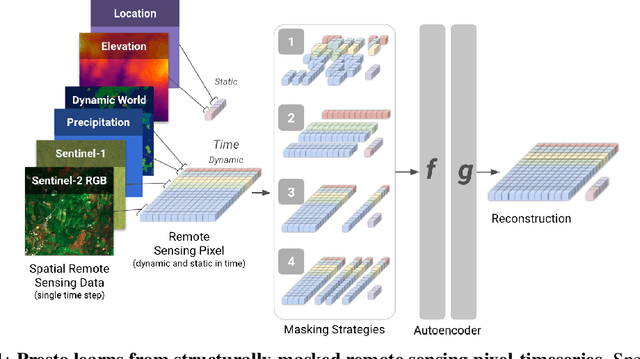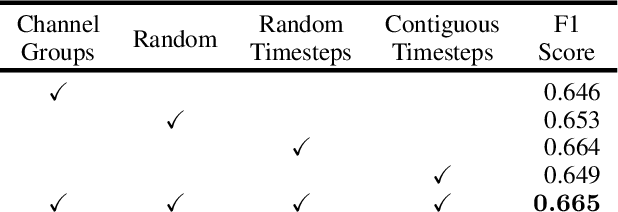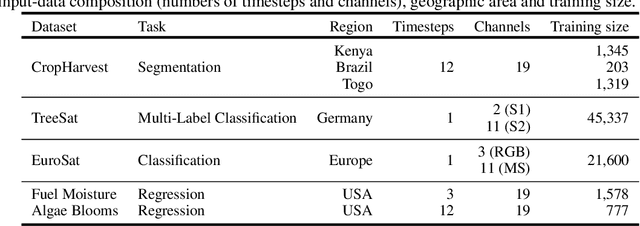Lightweight, Pre-trained Transformers for Remote Sensing Timeseries
Paper and Code
Apr 27, 2023



Machine learning algorithms for parsing remote sensing data have a wide range of societally relevant applications, but labels used to train these algorithms can be difficult or impossible to acquire. This challenge has spurred research into self-supervised learning for remote sensing data aiming to unlock the use of machine learning in geographies or application domains where labelled datasets are small. Current self-supervised learning approaches for remote sensing data draw significant inspiration from techniques applied to natural images. However, remote sensing data has important differences from natural images -- for example, the temporal dimension is critical for many tasks and data is collected from many complementary sensors. We show that designing models and self-supervised training techniques specifically for remote sensing data results in both smaller and more performant models. We introduce the Pretrained Remote Sensing Transformer (Presto), a transformer-based model pre-trained on remote sensing pixel-timeseries data. Presto excels at a wide variety of globally distributed remote sensing tasks and outperforms much larger models. Presto can be used for transfer learning or as a feature extractor for simple models, enabling efficient deployment at scale.
 Add to Chrome
Add to Chrome Add to Firefox
Add to Firefox Add to Edge
Add to Edge